“Microcontrollers in China: 30 Years of History” is Now Available
Embedded Systems Beijing Forum is pleased to present a collection book named “Microcontrollers in China: 30 Years of History”.
The e-book (in Chinese) is available for download here.
Celebrating 30 Years of China Microcontroller Society
Late October 1986, the first China Microcontroller Conference was held in Shanghai Fudan University, marking the beginning of microcontroller in China. 2016 also mark the 80th birthday of Turing machine, the 70th birthday of electronic computer, the 40th birthday of 8-bit processor MCS-48, makes the year quite a special one to remember.
In memory of the 30th anniversary of China Microcontroller Society, Allan He, chief secretary of Embedded System Beijing Forum, together with Embedded System branch of Beihang University Press, published “Microcontroller in China – 30 Years of History”, a collection of essays and historical resources. In the meantime, Embedded System Beijing Forum is honored to invite pioneers and witnesses of the history, and experts in higher education and industry, to Beihang University on Nov 19th, to commemorate the history of microcontroller and look into the future.
Limin He, Early Advocate of Microcontroller Application in China
As a pioneer of microcontroller application and the chief editor of “Microcontroller and Embedded System Application” journal, He has his unique view of the origin, history and future of microcontroller. Generally, he thinks microcontroller originated from those who studied Turing theory 80 years ago. The researchers laid the theoretical foundation of artificial intelligence, and the concept of Turing machine paved the path to modern computers; the notion that everything can be computed marked the beginning of independent software development. The first computer was the presentation of the soul of Turing machine, and microprocessor is the internalized form of Turing machine, which is also the ultimate form of it. From the creation of Turing model to practical application of modern computer and microprocessor, 30 years had passed.
During the past 30 years, we have experienced the initial years of microprocessor, the smart transformation of traditional electronics, the innovation stage of smart electronic systems, and the introduction of the Internet of Things. The era of Internet of Things will mark the disappearance of independent industry of embedded system, and the beginning of application services by embedded system.
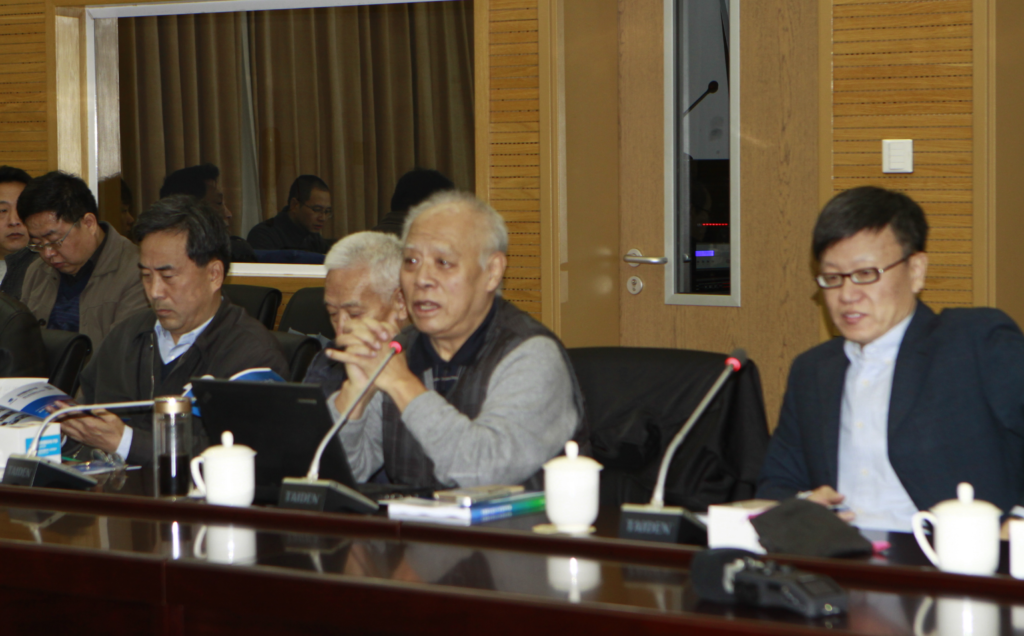
Tao Yuan, Associate Professor of Tsinghua University School of Automation
Today, Tao still gets excited when we talked about “Embedded System and Microcontroller International Conference and Product Show” back in 2001. Back then, the conference was a huge success; the location has to be changed three times due to the amount of registrants. About 6000 registrants and more than 70 companies attended the conference. Beijing Television Station produced three news session at the site and replayed them four times; it was truly a golden age for embedded system in China.
We have so many ways to obtain information nowadays, which makes such a scene impossible to reappear. However, IoT brings unprecedented growth and market to embedded system, we, the practitioners of embedded system, can relive the golden age by working close together!
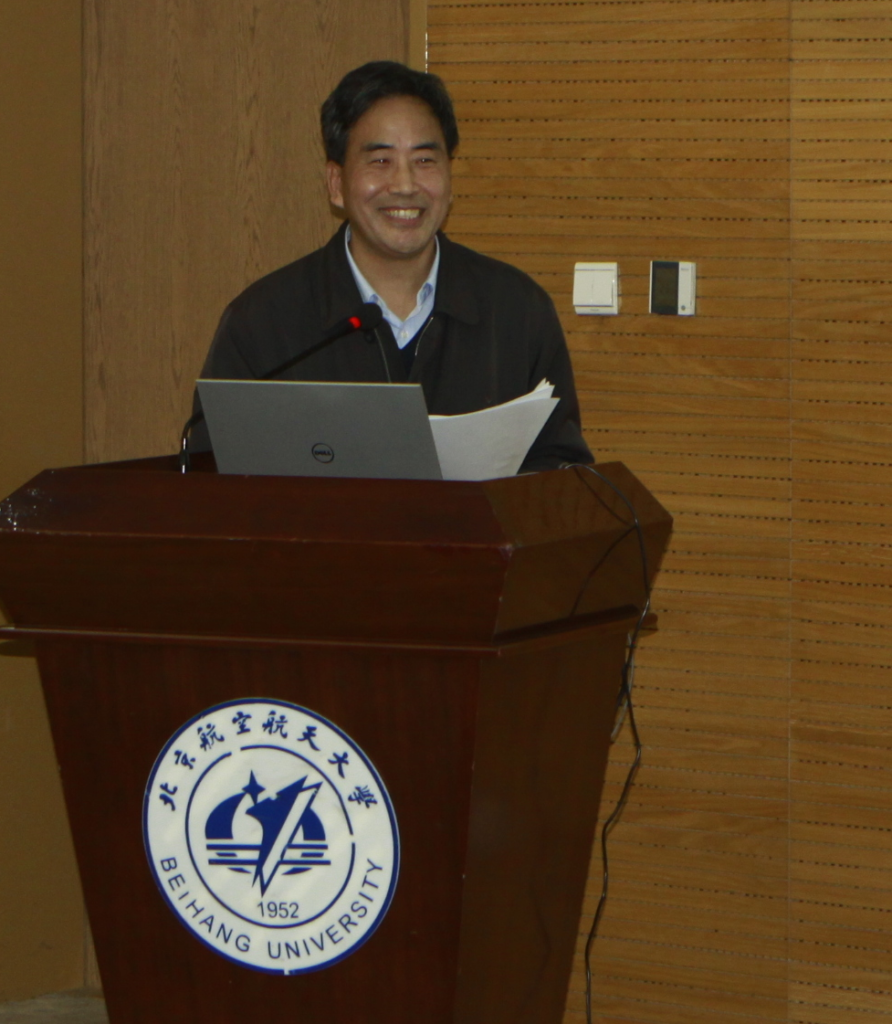
Associate Professor Beibei Shao, founder of Motorola-Tsinghua University Microcontroller Lab
As the founder of Motorola-Tsinghua University Microcontroller Lab, Beibei Shao has been bounded to microcontroller since the early days. Our 30 year collection includes his article wrote 10 years ago to celebrate 20 years of microcontroller in China. In the forum, he vividly shared his story with MCU during the past 30 years.
Professor Shao has a rich portfolio, he used to work in European Nuclear Research Center, and then teach in Tsinghua University and founded the Motorola Center and Microcontroller Lab. Until today, the University Project has been non-stop, as well as the car building contest (which is the 11th time now).
Shao always work on the frontier of research with his students. Except working with the military, he also work in high-speed railway, auto driving and protection system, and container detection, which are all closely related to microcontroller. He has accumulated a lot of experience of hardware and software development, as well as published and translated many publications. For example, “Embedded System Operating System μC/OS-II” in 2003 played an important role in promoting μC/OS-II and embedded system.
Shao thinks technology is not the most critical factor, instead market is more important. The success of ARM is a win of marketing. He also stressed that higher education today is out of touch of industry. From the standpoint of student, one should strive to learn more about the underlying mechanism.
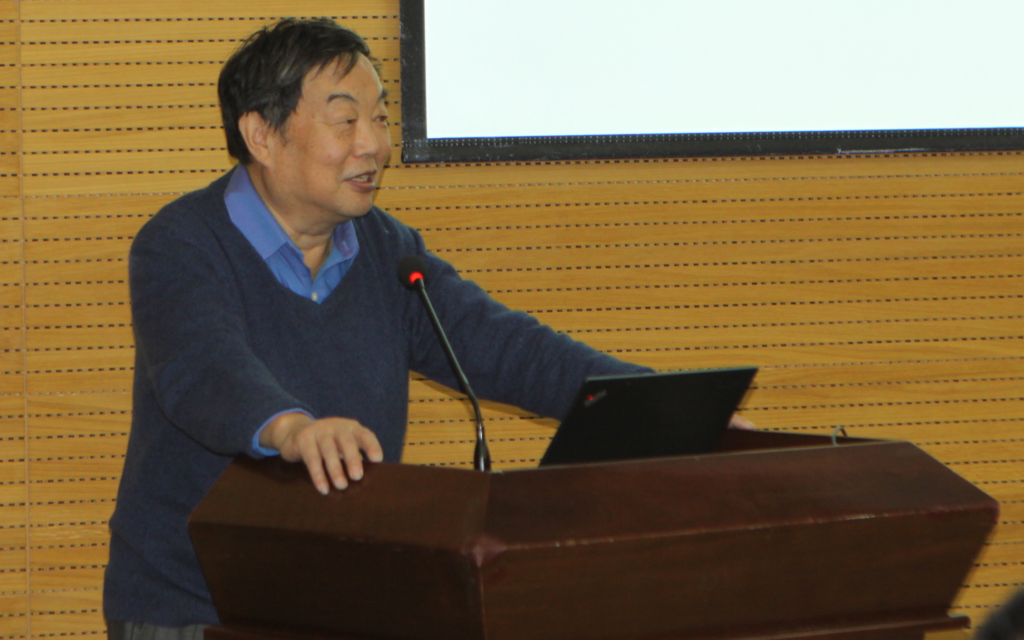
Jinlong Lin, Professor of Peking University Microelectronics and Software School Embedded System Department
The development of integrated circuit and IT in general has changed the architecture, development scheme and ecosystem of microcontroller industry. From the perspective of open-source hardware, Prof Lin analyzed how MCU development has been changed profoundly. As we all know, open source software has already made its impact. But open source hardware has been moving slowly. It wasn’t until the establishment of Open Source Hardware Associate that 2011 that the definition of open source hardware is fixated. Although open source hardware has been pushed mostly by amateur enthusiasts and some companies so far, it is making its influence to change the ecosystem of MCU and make the development process easier.
Professor Lin shared a number of success stories in open source hardware, including robots, 3D printers and wearables. He also stressed that open source hardware is still at its early stage with little mass-production level product, despite concentrated attention and future prospects.
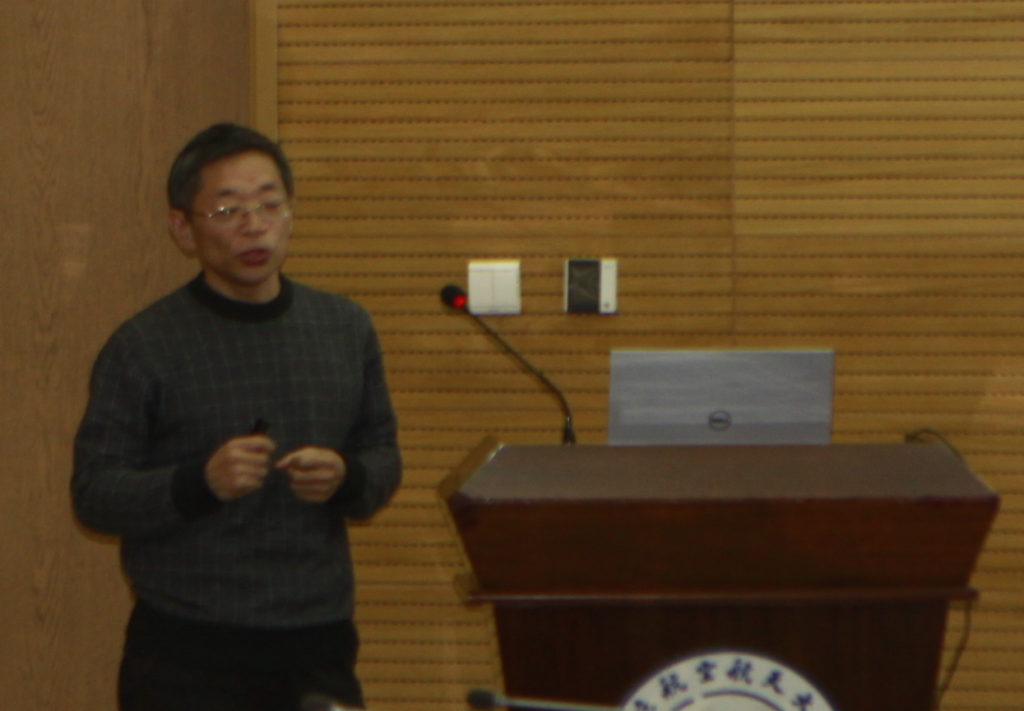
Pengpeng Wang, Marketing Manager of NXP Greater China
Wang started working in Philips Semiconductor in 2004 and has had 12 years or experience in MCU industry. From the perspectives of manufacture, packaging, project structure and peripherals, in conjunction with company products, software and ecosystem, she analyzed the development if MCU and shared many personal thoughts.
The dramatic change of MCU software development surpluses the change of product itself. During the age of 8-bit chip, one person can know the whole system and software, and use assembly and C language to write software to manipulate underlying hardware (which is usually compact with simple structure). In today’s ARM era, software development relies heavily on vendor or third-party software library; users care more about upper-layer application than underlying mechanism; software portability and inheritability has improved a lot and thus shortened product development cycle. As a result, software work is now taking up a bit chunk of the entire system.
The dramatic change of MCU software development surpluses the change of product itself. During the age of 8-bit chip, one person can know the whole system and software, and use assembly and C language to write software to manipulate underlying hardware (which is usually compact with simple structure). In today’s ARM era, software development relies heavily on vendor or third-party software library; users care more about upper-layer application than underlying mechanism; software portability and inheritability has improved a lot and thus shortened product development cycle. As a result, software work is now taking up a bit chunk of the entire system.
In ARM era, the notion of ecosystem has become well-known, to the point that its importance even exceeds product itself. The ever-growing ecosystem of ARM further strengthens its leader position. Meanwhile, 8-bit MCU still have a high (and growing) market percentage.
Current direction of MCU development is security, extensibility and energy efficiency. The boost from ecosystem to MCU development will also grow. In recent years, there have been more and more innovative companies, and Wang truly wish to see more MCU design companies taking the stage.
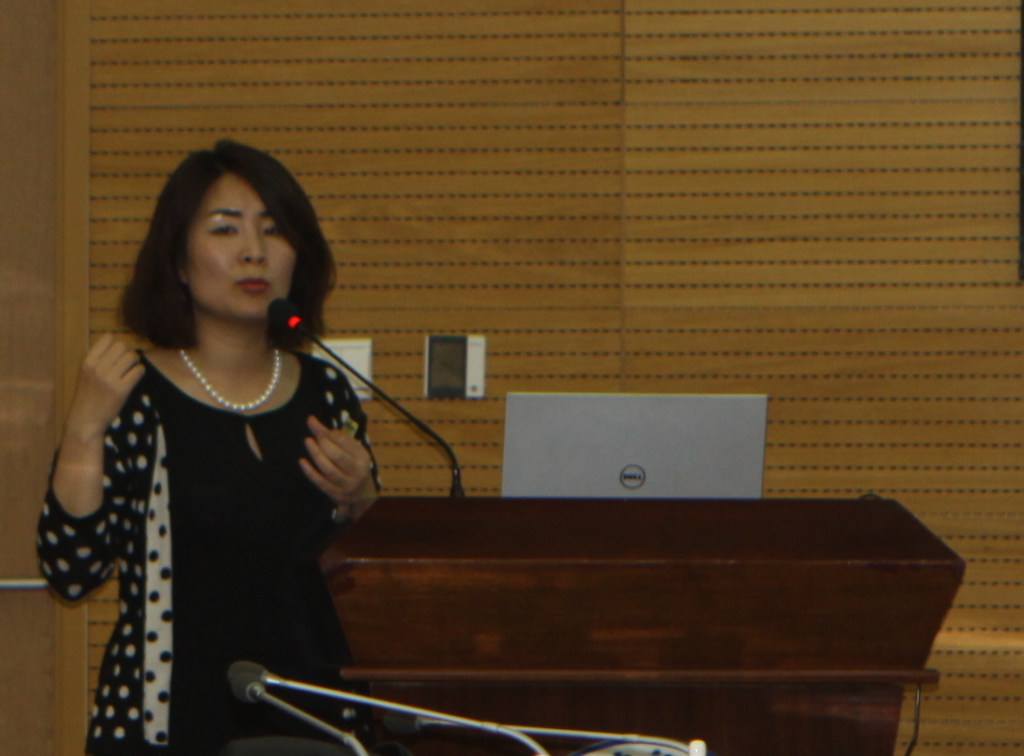
Yu Deng, MCU Product Director of Beijing Gigadevice
Late 2013, Deng attended a forum hosted by ESBF. At that time, GD32 MCU was at its very early days, with a total production of couple of hundred thousand. Many doubted if GD32 MCU can strive. In comparison, we are certainly glad to see that production of GD32 MCU reached dozens of million during the first half of 2016.
A good market position is essential to help a MCU company started with FLASH technology to grow in such a fast pace. Gigadevice used to have no experience with MCU, but after research it was decided to enter MCU market with ARM Cortex-M3, and maximize the strength in FLASH and produce MCU with good cost-performance ratio.
Currently, Gigadevice has twn series based on Cortex-M3, with a few new releases based on M4. Next, Gigadevice plans to develop new products based on M23 core.
Deng agrees that embedded education in universities is disconnected with the industry. Gigadevice signed University Plan with ARM last year to start help institutions on education.
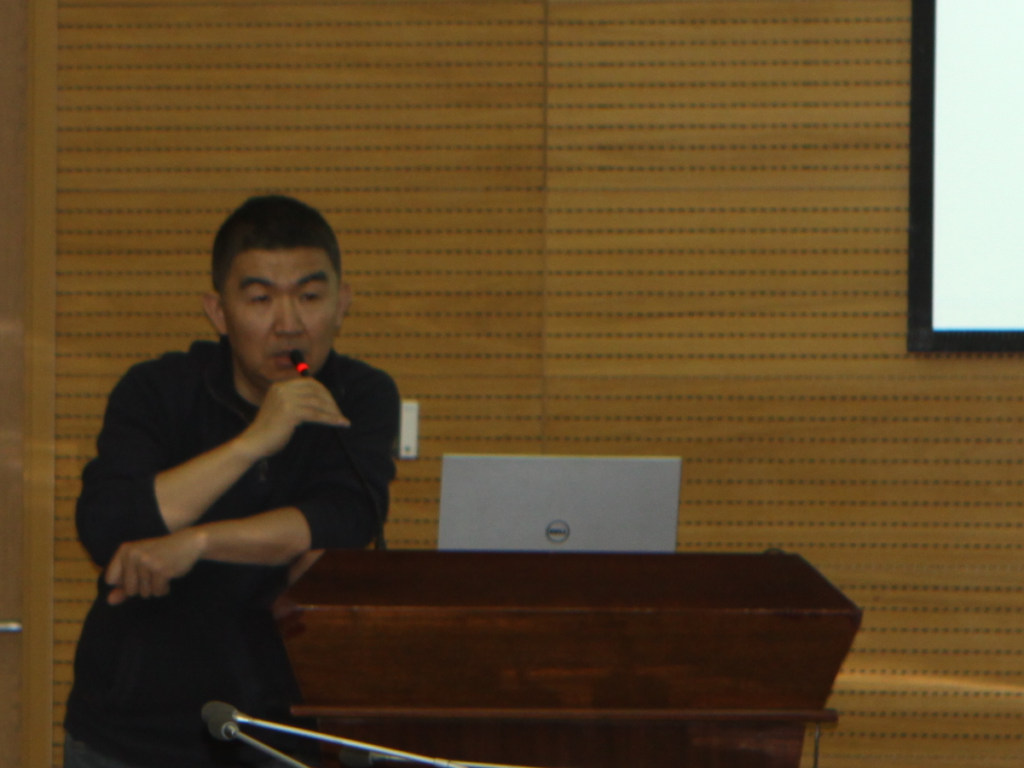
Renlie Lin, Deputy General Manager of MCU Application Branch, Nuvoton Technology
Nuvoton Technology was split from Winbon, a long-standing MCU company in Taiwan. Lin is an old friend of ESBF, he came and spole abount MCU future technology and development.
The product line of Nuvoton include traditional 8051 and also M0, M4. Lin mentioned that although 8-bit ad 32-bit MCU are both increasing in term of marketing share, but 32-bit is in leading position. The trend of IoT will lead to further development of MCU, especially with 32-bit. From the perspective of MCU technology, low energy, security, integration of analog modules and power management, are for consideration in the future.
Lin addressed that there will be room for innovation in terms of hardware architecture and software development platform of MCU.
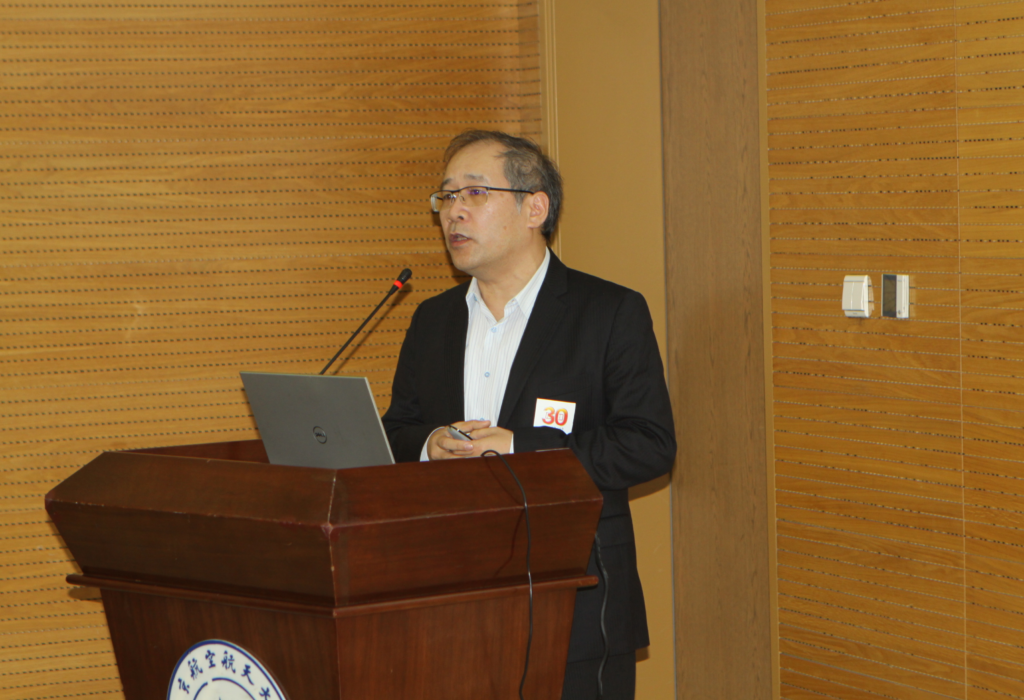
Final Remarks
Within our 70 participants, there are early pioneers, entrepreneurs who have experience hardship, and new generations that recently entered the industry and unsure about the future. In this day, they gathered together and shared their different view for embedded system industry. Longjiang Wang, Xiaolong Deng, Tao Zhou, Jianchao Peng and many others spoke during the forum. The forum was hosted by Limin He and Allan He. Everyone attended learned a lot about the history and current of MCU.
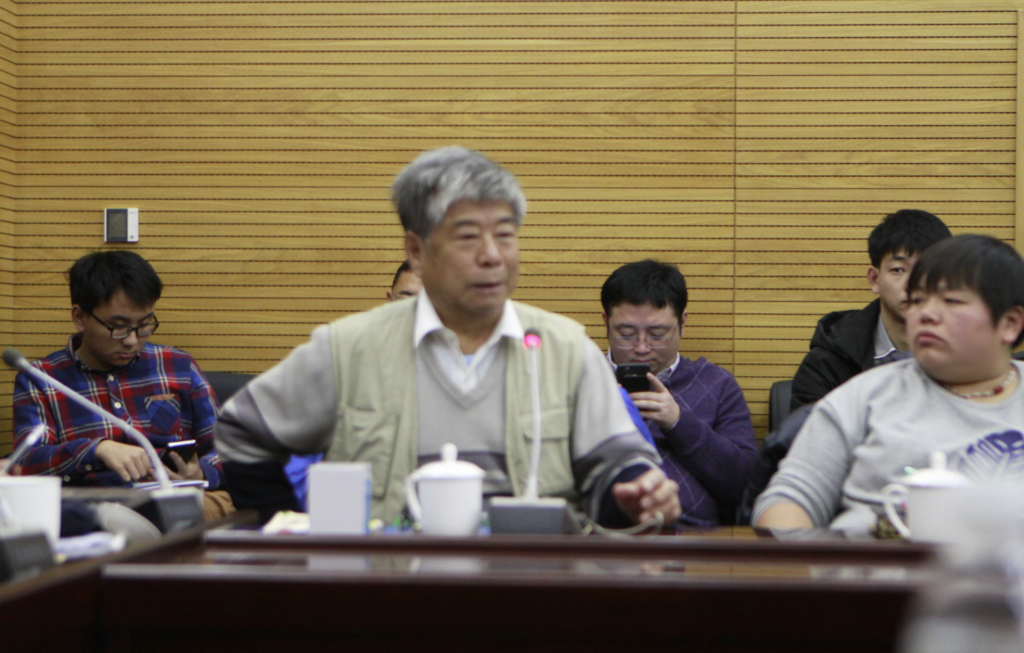
We would like to pay tribute to those who have contributed to MCU industry in China. IoT brings tremendous potential and market opportunity to MCU, we hope industrialists can work together to explore and seize the chance to push for a better future.
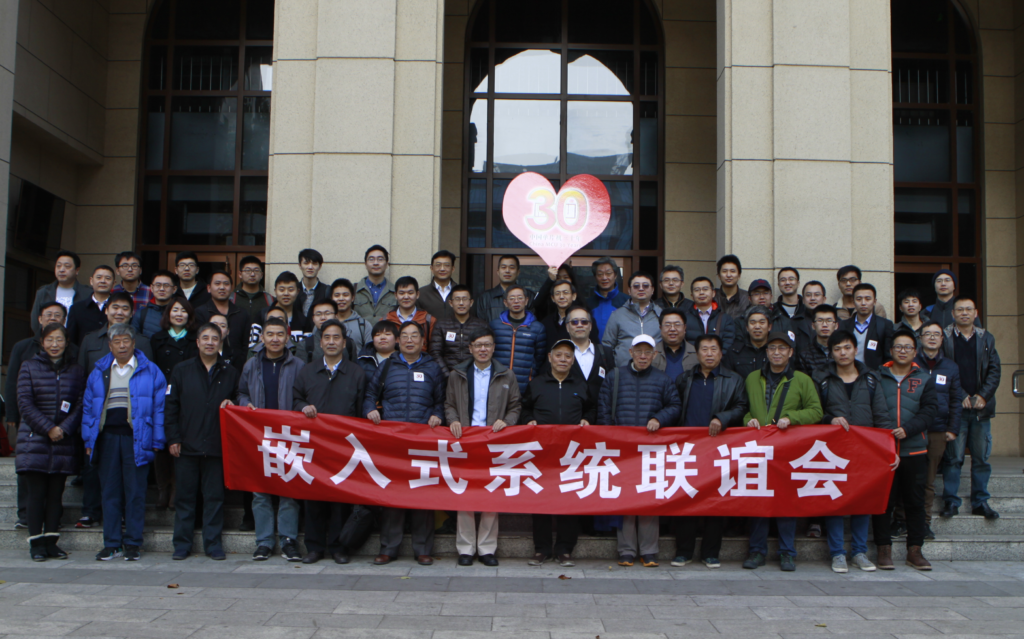
The original article is written by Xiaojing Lu, Deputy Editor in Chief of “Microcontroller and Embedded System Application” journal, and checked by Allan He. Meeting photos are a courtesy of Xiaoming Lab of Taiyuan University of Technology.
Agenda & Keynotes Download
Date: November 19th, 2016
Location: 8th Conference Room, New Main Building, Beihang University
Morning
MCU in China – 30 Years of History
Hosted by Limin He, Editor in Chief, Microcontroller and Embedded System Application
| Time | Item/Speech | Speaker |
| 08:30-09:00 | Registration | |
| 09:00-09:15 | Guest Introduction | |
| 09:15-10:00 | Origin, History and Future of MCU | Limin He, Editor in Chief, Microcontroller and Embedded System Application |
| 10:00-10:30 | Golden Years of MCU and Embedded System in China | Prof. Tao Yuan, Tsinghua Univerisity School of Automation |
| 10:30-11:00 | My 30 Years with MCU | Prof. Beibei Shao, Founder, Motorola-Tsinghua University MCU Laboratary |
| 11:00-12:00 | Discussion |
Afternoon
Future Development of MCU in China
Hosted by Allan He, Chief Secretary, Embedded System Beijing Forum
| Time | Item/Speech | Speaker |
| 13:30-14:00 | Open Source Hardware and MCU Application | Prof. Jinlong Lin, Microelectronic and Software Schoool, Peking University |
| 14:00-14:30 | Evolution and future of MCU Products, Software and Ecosystem – An NXP Prospective | Pengpeng Wang, MCU Marketing Manager, NXP China |
| 14:30-15:00 | Growth and Development of GD32MCU | Yu Deng, MCU Product Director, Beijing Gigadevice |
| 15:00-15:30 | MCU Technology and Future Development | Renlie Lin, Deputy General Manager, MCU Application Branch, Nuvoton Technology |
| 15:30-16:30 | Discussion |
